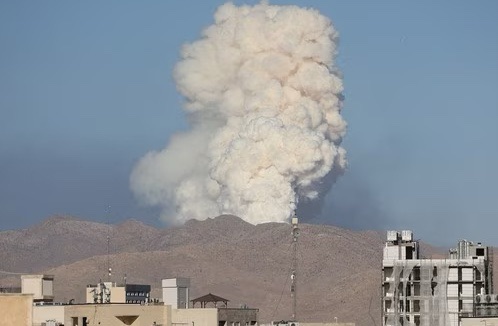Lagatar24 Desk
The Israel-Iran war escalated sharply on June 22 as the United States launched direct airstrikes on Iran in support of Israel. At around 4:30 AM, American B-2 stealth bombers targeted three of Iran’s key nuclear sites – Fordow, Natanz, and Isfahan – using GBU-57 “bunker buster” bombs, designed to destroy deeply buried facilities.
Global Condemnation, Iran Promises Response
Following the strike, Iran declared that it would retaliate. Meanwhile, China and Russia condemned the US assault. Moscow even offered to mediate, though the possibility of successful diplomacy remains slim. Tehran claimed that the nuclear sites had been evacuated ahead of the attack, minimizing damage. It accused the US of violating international law and filed a formal complaint with the United Nations.
Background of the Conflict
The Israel-Iran conflict has been raging since June 13. Israel has conducted targeted strikes in Tehran and other Iranian cities, reportedly killing military officials and nuclear scientists. In return, Iran has fired missiles at key Israeli cities including Tel Aviv and Jerusalem.
Trump Issues Stern Warning
US President Donald Trump, speaking after the attack, said that Iran must halt its nuclear ambitions or face total destruction. On his social media platform Truth Social, he claimed the targeted facilities were “completely destroyed” and praised the military for a “flawless operation”.
Iran May Opt for Proxy Retaliation
Iranian media, quoting representatives close to Supreme Leader Ayatollah Khamenei, called for immediate retaliation. Suggestions included attacks on the US naval fleet in Bahrain and shutting down the strategic Strait of Hormuz. Experts believe Iran is likely to respond through its proxy forces – including Hezbollah, Houthi rebels, and Shia militias – rather than direct confrontation with US forces.
Rising Tensions in the Region
This development has plunged the Middle East into deeper uncertainty. With nuclear tensions and major global powers now directly involved, the chances of regional or even global destabilization have sharply increased.







